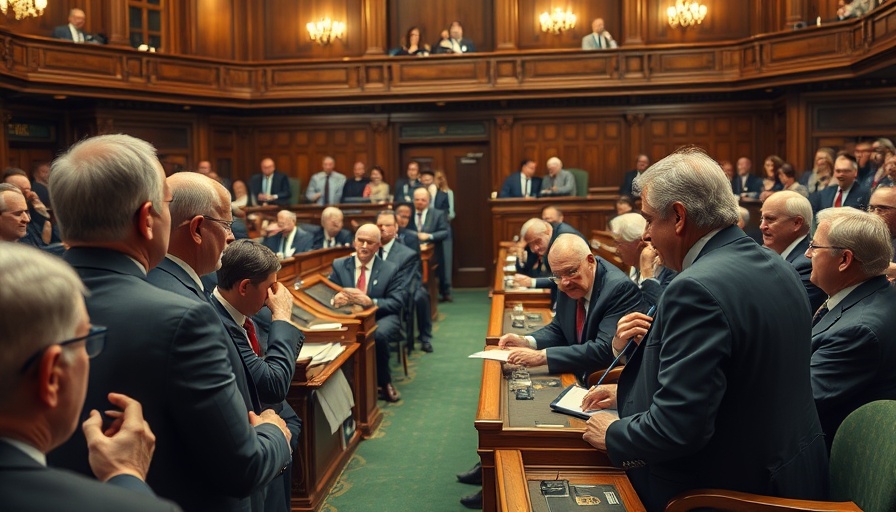
Texas Senate Approves New Congressional Maps: What You Need to Know
In a significant political development, the Texas Senate has approved redrawn GOP congressional maps which are now headed to Governor Greg Abbott for final approval. This decision, coming amid ongoing conversations about gerrymandering and electoral fairness, could reshape political representation in Texas dramatically over the next decade.
Historical Context and Background
The redistricting process occurs every ten years following the U.S. Census, and Texas has experienced substantial population growth. Between 2010 and 2020, Texas gained two additional congressional seats due to its rising population, which necessitated a redesign of its congressional maps. Previous redistricting efforts in Texas have often been contentious, with accusations of gerrymandering aimed at benefiting one party over another. The current redistricting bill follows this historical pattern, inciting debates around fairness and equal representation in the democratic process.
Social Connection: The Impact on Voters
Understanding how these newly drawn maps will affect local communities in San Antonio, the fourth largest city in the state, is crucial for residents. The redistricting could influence local elections, affecting everything from budget allocations to representation in Congress. Voters may find their districts changing significantly, which can lead to confusion and apathy, ultimately impacting voter turnout.
Future Predictions: Shifts in Political Landscape
Political analysts predict that the newly designed congressional districts will likely benefit Republican candidates in future elections given the party's control over the redistricting process. This could further solidify GOP power in Texas, making it essential for Democratic candidates to adapt their strategies to mobilize voters effectively. As the midterm elections loom near, the ramifications of these changes could resonate deeply throughout the local and national political landscape.
Counterarguments and Diverse Perspectives
Opponents of the redistricting bill have raised concerns about gerrymandering, arguing that the new maps are designed to dilute the voting power of certain demographics, including minorities. They argue for transparency and fairness in the redistricting process, calling for bipartisan efforts that ensure all voices are considered. This ongoing debate emphasizes the challenges of balancing political power with fair representation.
Decisions You Can Make With This Information
For residents of San Antonio and surrounding areas, being informed about these changes is essential. Understanding the implications of the newly drawn congressional maps can empower voters to make more informed decisions in upcoming elections. Participation in community discussions, town halls, and local meetings can help individuals voice their concerns and engage with the democratic process meaningfully.
Actionable Insights: Getting Involved
Citizens are encouraged to engage with local political leaders and remain active within their communities. As the new maps may influence local governance and funding for critical infrastructure or educational initiatives, individuals should consider attending community meetings to discuss concerns and advocate for fair representation. Voting is not the only way to be active; advocacy groups can help amplify voices to ensure that local leaders are held accountable.
Conclusion
The approval of redrawn congressional maps by the Texas Senate marks a crucial moment in the state's political future. As discussions continue, it is paramount that residents stay informed and active within their communities. By understanding the implications of these changes, individuals can better navigate the upcoming electoral landscape and ensure their voices are heard. Further engage with local news sources, such as San Antonio local news, to stay updated on this evolving story and its impact on our community.
 Add Element
Add Element  Add Row
Add Row 



Write A Comment